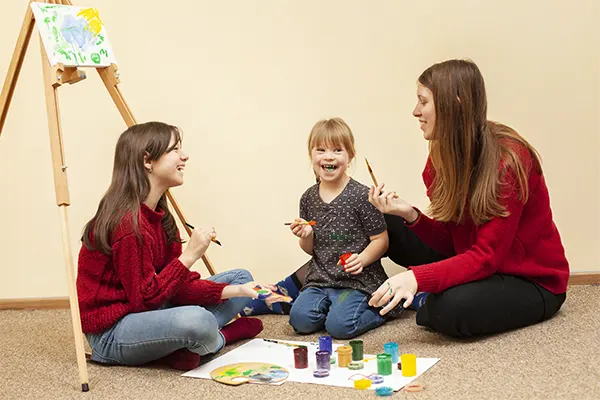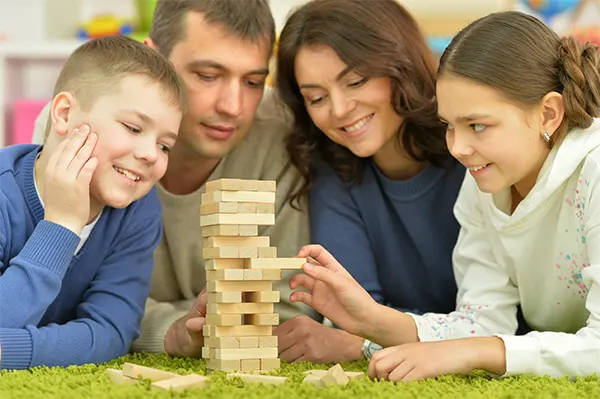Understanding how to help your child develop social skills is one of the most crucial aspects of parenting. Social skills are the foundation for a child’s success in both their personal and professional lives. These skills enable children to interact positively with others, build lasting relationships, and navigate the complexities of social interactions. In today’s interconnected world, fostering these abilities from a young age can significantly impact a child’s emotional and social well-being. This article delves into the essential strategies and practical tips for parents to help their children develop strong social skills, ensuring they grow into well-rounded and socially adept individuals.
Understanding Social Skills
Social skills refer to the abilities necessary for effective interpersonal communication and interaction. They include a wide range of behaviors and abilities, such as empathy, communication, cooperation, and problem-solving. Social skills are vital for children as they help them make friends, succeed in school, and later on, in the workplace. These skills are not innate; they are learned and developed through experience and guidance.
The Importance of Social Skills
Social skills play a significant role in a child’s development. They affect various aspects of a child’s life, including:
- Emotional Well-being: Children with strong social skills are more likely to form positive relationships with peers and adults, leading to better emotional health.
- Academic Success: Good social skills contribute to a positive school experience, including better relationships with teachers and classmates, and can even impact academic performance.
- Future Relationships: Developing social skills early on sets the foundation for healthy relationships in adulthood, including friendships, romantic relationships, and professional interactions.
- Problem-Solving: Socially skilled children are better equipped to resolve conflicts, negotiate, and work collaboratively with others.

Identifying Key Social Skills
Several key social skills are essential for children to develop. These include:
- Communication: The ability to express thoughts and feelings clearly and listen to others.
- Empathy: Understanding and sharing the feelings of others.
- Cooperation: Working well with others to achieve a common goal.
- Self-Control: Managing emotions and behaviors in various situations.
- Problem-Solving: Identifying solutions to conflicts or challenges.
- Listening: Paying attention to others and understanding their perspectives.

How to Help Your Child Develop Social Skills?
1. Model Positive Social Behavior
Children learn by observing the behaviors of adults, especially their parents. Demonstrating positive social behavior in your interactions with others sets a powerful example for your child to follow. Here are some ways to model positive social behavior:
- Show Respect and Kindness: Treat others with respect and kindness in your daily interactions. Your child will learn the importance of these values and incorporate them into their behavior.
- Active Listening: Practice active listening by giving your full attention to the speaker, making eye contact, and responding appropriately. This teaches your child the importance of listening in conversations.
- Conflict Resolution: Handle conflicts calmly and constructively. Show your child how to negotiate, compromise, and resolve disagreements without aggression. Be a star everywhere you go: discover fun personality development skills.

2. Encourage Play and Social Interaction
Play is a vital part of a child’s development and provides numerous opportunities to practice social skills. Encourage your child to engage in both structured and unstructured play with peers. Here are some ideas to facilitate social interaction through play:
- Playdates: Arrange playdates with children of similar ages. This allows your child to practice sharing, taking turns, and cooperating with others.
- Group Activities: Enroll your child in group activities such as sports, music classes, or clubs. These environments provide opportunities for teamwork, communication, and making new friends.
- Free Play: Allow time for unstructured play, where children can create their own games and rules. This fosters creativity and problem-solving skills.
Visit: benefits of digital parenting
3. Teach Empathy and Understanding
Empathy is a crucial social skill that helps children understand and relate to the feelings of others. Teaching empathy can be done through various activities and discussions:
- Reading Stories: Read books that highlight different emotions and perspectives. Discuss the characters’ feelings and actions with your child.
- Role-Playing: Engage in role-playing activities where your child can practice different social scenarios and explore how others might feel in certain situations.
- Discuss Emotions: Talk about emotions regularly. Ask your child how they feel in different situations and encourage them to consider how others might feel.
4. Promote Effective Communication
Effective communication is the cornerstone of social interaction. Helping your child develop strong communication skills involves:
- Encouraging Expression: Encourage your child to express their thoughts and feelings. Provide a safe and supportive environment where they feel comfortable sharing.
- Teaching Nonverbal Cues: Explain the importance of body language, facial expressions, and tone of voice in communication. Practice recognizing and using these nonverbal cues.
- Practicing Conversations: Engage in conversations with your child, asking open-ended questions and encouraging them to elaborate on their responses. This helps them practice conversational skills.
5. Foster Cooperation and Teamwork
Cooperation and teamwork are essential social skills that can be developed through collaborative activities. Here are some ways to encourage these skills:
- Group Projects: Involve your child in group projects or family activities that require collaboration. Emphasize the importance of working together to achieve a common goal.
- Games and Sports: Team sports and cooperative games teach children the value of teamwork, communication, and fair play.
- Shared Responsibilities: Assign household chores or tasks that require cooperation with siblings or other family members.
6. Develop Problem-Solving Skills
Problem-solving is a critical social skill that helps children navigate conflicts and challenges. Encourage your child to develop these skills through:
- Conflict Resolution: Teach your child steps for resolving conflicts, such as identifying the problem, considering different solutions, and finding a mutually agreeable outcome.
- Critical Thinking: Encourage your child to think critically about problems and brainstorm possible solutions. Discuss the pros and cons of each solution.
- Role-Playing Scenarios: Practice problem-solving through role-playing different social scenarios. This helps your child prepare for real-life situations. Raise happy and confident kids with the help of engaging programs for personality development for kids!

7. Encourage Positive Self-Expression
Positive self-expression allows children to communicate their feelings and needs effectively. Encourage your child to express themselves through:
- Creative Activities: Engage in creative activities such as drawing, writing, or playing music. These activities provide an outlet for self-expression and help children communicate their emotions.
- Journaling: Encourage your child to keep a journal where they can write about their thoughts and feelings. This helps them process emotions and reflect on their experiences.
- Open Communication: Maintain open lines of communication with your child. Let them know that their feelings and opinions are valued and respected.
Visit: why critical thinking for kids
Conclusion
Understanding how to help your child develop social skills is a vital aspect of parenting that requires patience, guidance, and practice. By modeling positive social behavior, encouraging play and social interaction, teaching empathy, promoting effective communication, fostering cooperation and teamwork, developing problem-solving skills, and encouraging positive self-expression, parents can provide their children with the tools they need to navigate the social world successfully. These efforts not only contribute to a child’s immediate happiness and well-being but also lay the foundation for a fulfilling and successful future. Helping your child develop social skills is a continuous process that evolves as they grow, but with the right support and strategies, every child can thrive socially and emotionally.

